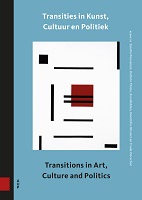Chapter Cultuurkritiek in het antropoceen
| dc.contributor.author | van Amelsvoort, Jesse | |
| dc.date.accessioned | 2023-10-12T13:13:54Z | |
| dc.date.available | 2023-10-12T13:13:54Z | |
| dc.date.issued | 2023 | |
| dc.identifier | ONIX_20231012_9789048560110_7 | |
| dc.identifier.uri | https://library.oapen.org/handle/20.500.12657/76681 | |
| dc.language | Dutch | |
| dc.subject.other | environmental humanities | |
| dc.subject.other | ecocriticism | |
| dc.subject.other | cultural critique | |
| dc.subject.other | representation | |
| dc.subject.other | Rosemarie Buikema | |
| dc.title | Chapter Cultuurkritiek in het antropoceen | |
| dc.type | chapter | |
| oapen.abstract.otherlanguage | Framed against Timothy Clark’s comments on the potency of ecocriticism, in this contribution I first zoom in on how cultural critique according to Rosemarie Buikema can contribute to discussions on matters of common concern. I then sketch two lines of argument that emerge from her work: firstly, the way in which art and culture can break through societal silences and, secondly, the importance of history and the past for cultural production in the present. Both issues are important where it concerns climate change and the Anthropocene. They lead to the essential question when thinking about ecocriticism: not ‘where goes cultural critique’ (the ‘quo vadis’ question), but what kind of critique is necessary? | |
| oapen.identifier.doi | 10.5117/9789048560110_amelsvoort | |
| oapen.relation.isPublishedBy | dd3d1a33-0ac2-4cfe-a101-355ae1bd857a | |
| oapen.relation.isPartOfBook | 95ba63c0-4a4a-4684-a56c-73ba347aa51b | |
| oapen.relation.isFundedBy | b586072e-2e5d-469f-8332-217c0beb5b08 | |
| oapen.relation.isFundedBy | 4d864437-7722-4c66-b80f-140a98d4bca9 | |
| oapen.relation.isbn | 9789048560110 | |
| oapen.relation.isbn | 9789048560127 | |
| oapen.pages | 9 | |
| oapen.place.publication | Amsterdam | |
| oapen.grant.number | [...] | |
| oapen.grant.number | [...] |

